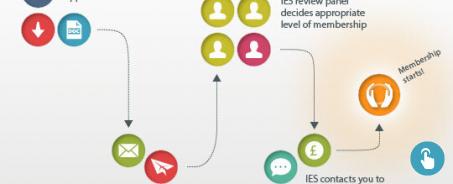The points system
Applications to the IES are graded on a points system, with the total made up from a combination of academic and work experience. The decision on the appropriate membership grade is decided by the Application Review Panel (ARP).
Academic experience criteria
| Qualification | Relevant | Non-relevant |
|---|---|---|
| PhD | 10 | 5 |
| Masters | 7 | 3.5 |
| PgDip | 6.5 | 3 |
| Bachelors | 6 | 3 |
| Foundation Degree / HND or other Level 5 technical qualification / Level 5 Apprenticeship | 5 | 2.5 |
| Level 4 Apprenticeship/ HNC or other Level 4 technical qualification | 4 | 2 |
| 3 A Levels / a T-Level / Level 3 Apprenticeship / other Level 3 technical qualification | 3 | 1.5 |
Points are determined by the highest relevant qualification e.g. PhD 'trumps' a Masters degree. The IES automatically awards relevance if the course title is included in our list of approved environmental science courses (pdf) which closely aligns with the ES3 Benchmark Statement as well as aspects from other related QAA statements. There are some additional degrees not mentioned on this list that may be considered relevant at the ARP's discretion. However, for courses not listed, applicants may provide justification for how their academic experience has directly furthered their understanding of environmental science, which may lead to the determination of relevance by the assessors. International qualifications should be translated into their UK equivalents (this website may prove useful).
Work experience criteria
Years (and therefore points) accrued whilst in relevant employment signals experience, commitment and achievement in the environmental science sector. Applicants therefore must demonstrate how their work is aligned to the sector.
- ½ point for every six months relevant work experience at graduate level.
- Relevant placements may count towards your work experience.
- The ARP can award points for partial relevance, e.g. a Health and Safety & Environmental Officer may be awarded 1 point for every 3 years work.

